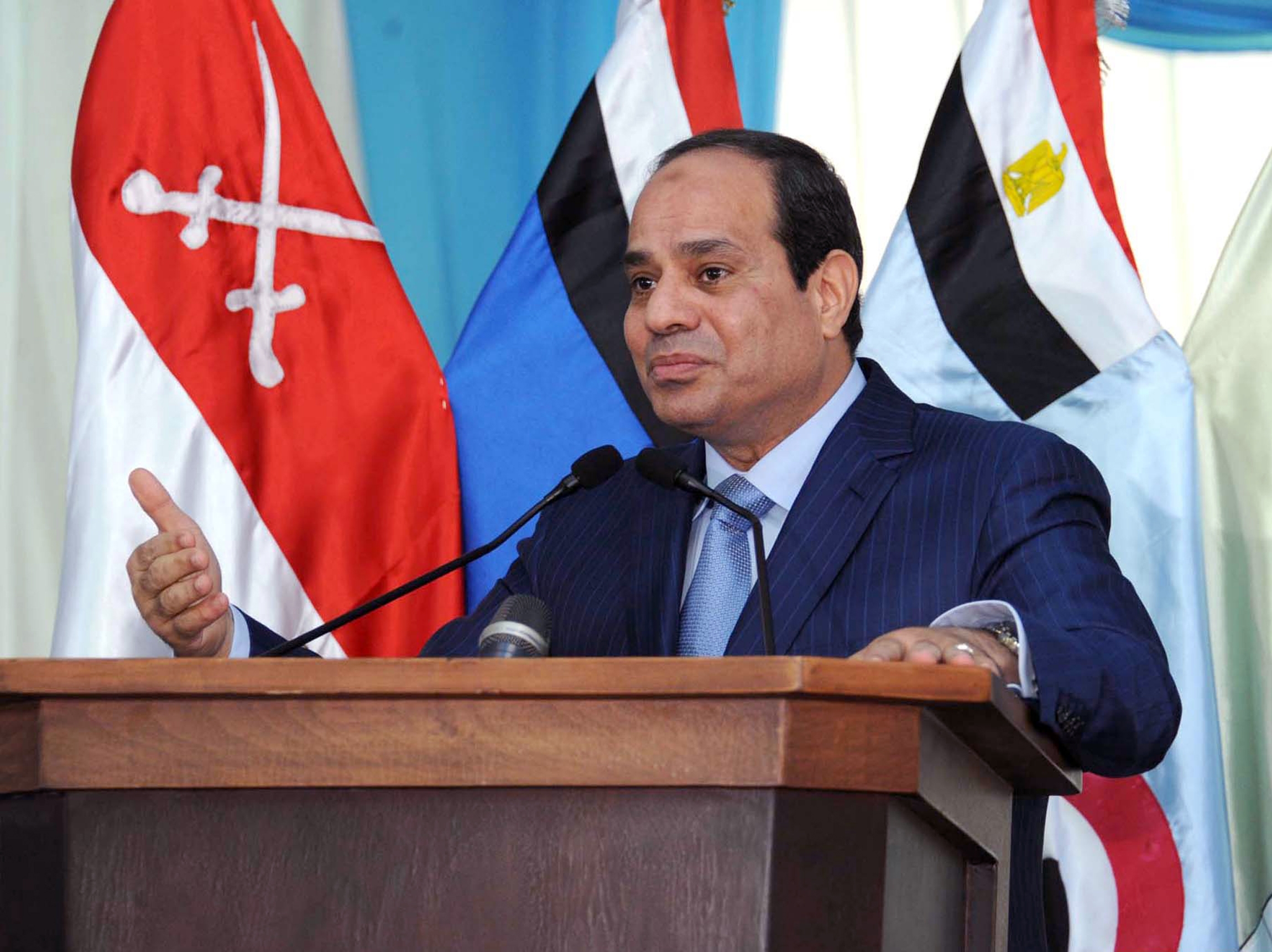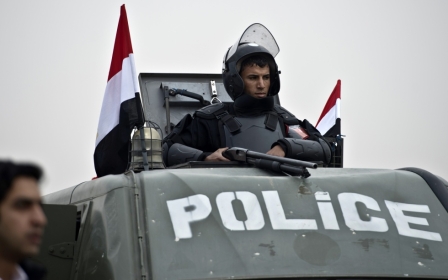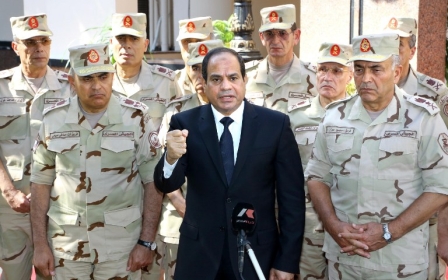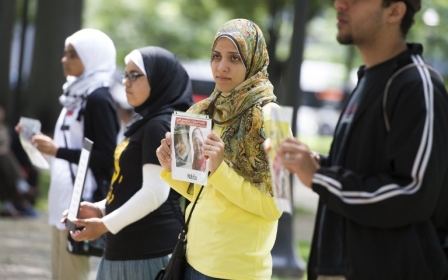Sisi’s economy: Out of the storm, but for how long?

President Sisi’s economic policy risks increasing the gap between the poor and high-income sectors of Egyptian society. In the last few months, the cabinet approved cuts on energy subsidies in order to reduce the budget deficit from around 14% of GDP to 10% in the 2014/2015 fiscal year. The reform had long been demanded by the International Monetary Fund, which previously denied a $4 billion loan to the country as long as the subsidies remained in place.
Economists and experts agree that the reform is necessary to revive the Egyptian economy, but they also believe that the state has not been able to properly address domestic economic issues in a way that would minimise the impact on low-income groups. As a consequence of those steps, the price of fuel and electricity increased and as a consequence increased the cost of food and public transportation. The burden has especially fallen on the 30% of the population who live below the poverty line, so far without provoking any social unrest.
“So far we did not see any violent reaction to Sisi’s economic policy because the majority of the Egyptian people trust him. However, it will not last forever if economic and social issues will not be addressed in the right way,” says Hassan Nafaa, professor of political science at Cairo University. According to Nafaa, Sisi’s economic and social policy will never work unless the country is stabilised. This means “not only guarantee more security, but also granting more freedom to civil society because terrorism cannot be challenged only by force”. Nafaa doesn’t expect another forced removal if Sisi will fail, like Egypt’s last two presidents, but acknowledges that his failure will drive the country to more destabilisation.
“The government reduced subsidies and we agree on that”, said Ashraf Hussein, director of the economic unit at the Egyptian Initiative for Personal Rights, a Cairo-based NGO. “But we would have liked to see more radical steps, followed by other fundamental decisions, like growth of salaries and adoption of a progressive taxation system that targets the richer sectors of the Egyptian society,” Hussein added.
According to Hussein, while big corporations and industries can easily compensate the cut on subsidies by raising the price of goods they sell, the most visible consequence of Sisi’s policy is on consumers and small family-led enterprises, who have to pay the most for austerity measures deemed necessary for the sake of the country.
Subsidies for food should not be removed as malnourishment contributes to around 10% of children mortality rate in Egypt, Hussein explained. “Some economists suggest a shift from a subsidy system to a cash transfer system that gives money to the breadwinner, but I disagree,” Hussein said. “None can guarantee this money will be used for food, and we need to provide breakfast and a cup of milk to our children everyday,” he added.
After World War II, Egypt started subsidising several kinds of commodities, including food, energy, transportation, housing, health and education that was aimed at relieving quality of life costs for both poor and rich. These un-targeted methods, however, turned out to be too expensive, as 25% of state expenditures in 2013 went to food and energy subsidies.
State authorities have attempted to slowly reduce those subsidies since the 1980s, but without a long-term vision. Furthermore, the outbreak of social turmoil led the cabinets to shy away from any serious reform, appeasing the social unrest by using military industries to produce cheap food or by delaying more cuts.
The short-term vision of Egyptian rulers, an extensive corrupted system that favoured big corporations well connected to the Mubarak government, exclusive advantages granted to military factories and a lack of growth in the private sector contributed to the rise of the Egyptian external debt up to 45 billion dollars in 2014.
“Sisi’s policy is short-term focused because it seems he does not consider all the social, economical and environmental consequences related to his decisions,” says Fadhel Kaboub, professor of economy at Denison University and president of the newly established think-tank Binzagr Institute for Sustainable Prosperity. As Kaboub explained, Sisi’s cabinet relies on a neo-liberal philosophy, where cuts on energy subsidies should lead consumers to change their behaviour in a more efficient way, but this will immediately hit the consumption of low-income groups, removing one of the main safety nets they have without any other measures that could compensate this loss.
In the previous decade, as the Mubarak government was turning more to a neo-liberal perspective, government social safety nets were reduced, so he needed an informal safety net which was provided by the Muslim Brotherhood-led charity network. However, since the disbandment by law of the movement and its declaration as a terrorist organisation, its wide network of charities and NGOs have largely been shut down, leaving a gap in the provision of many social services.
These charities provided food, cash payments, gas canisters, medical assistance, and bricks and mortar agencies, and were often the only institutions on which low income groups could rely on. “Now the army is stepping up to act as quasi government social safety net but it is not clear if it will be institutionalised as a formal safety net or if it is just a temporary-strategic safety net that will go away after a while,” explains Kaboub.
After the UN meeting held in New York last September, Sisi has been able to achieve the international legitimacy and support he lacked after Morsi’s removal because he portrayed himself as a champion of anti-terrorism and anti-islamism in the region. The president knows that in the regional turmoil, a relatively internally stable Egypt is vital for Western and Gulf countries who will close more than one eye to their poor human rights record and might invest money in the country.
But, according to professor Nafaa, the improvement of Egypt’s image comes from Sisi’s willingness to tackle some core domestic issues, including the economy. “It will be hard to preserve the good consideration Egypt finally got internationally if Sisi will not succeed,” says Nafaa.
According to Robert Springborg, an expert on Egyptian affairs, donors and allies care very little about the Egyptian economy or its social impact, as long as Sisi continues to be a bastion against Islamist-inspired political violence, their main concern. “In their view, as long as the Egyptian government lends substantial support to the broader counterterrorism campaign in the region, it will be deserving of their support. They do not take a broader view of development as the antidote to terrorism, as they are politicians concerned with the short term.”
New MEE newsletter: Jerusalem Dispatch
Sign up to get the latest insights and analysis on Israel-Palestine, alongside Turkey Unpacked and other MEE newsletters
Middle East Eye delivers independent and unrivalled coverage and analysis of the Middle East, North Africa and beyond. To learn more about republishing this content and the associated fees, please fill out this form. More about MEE can be found here.




